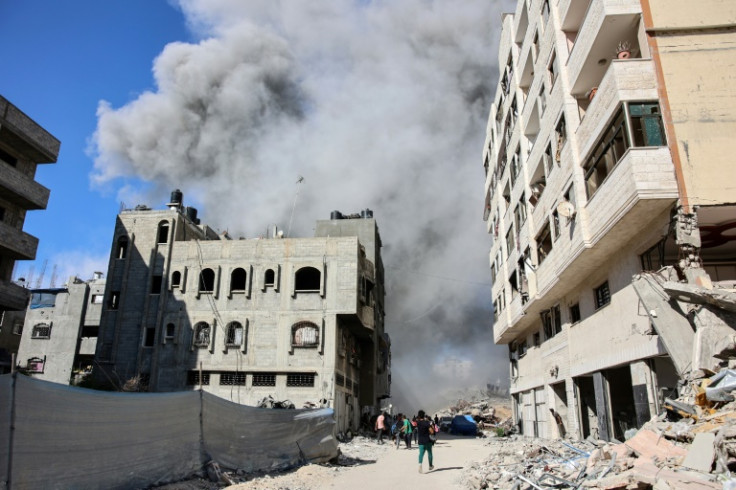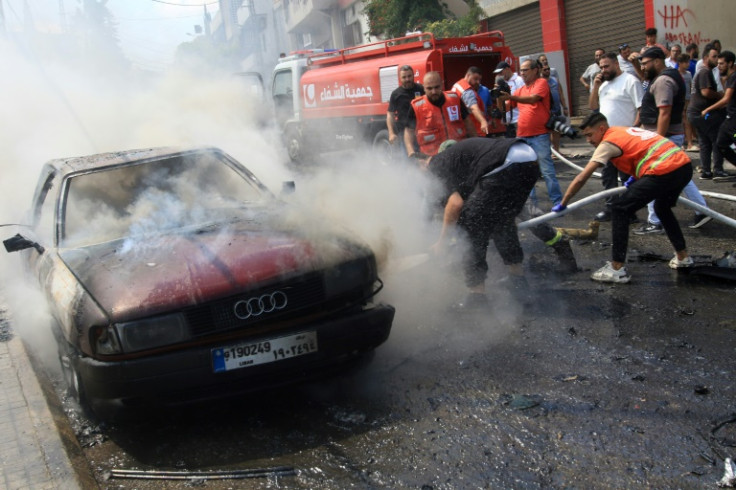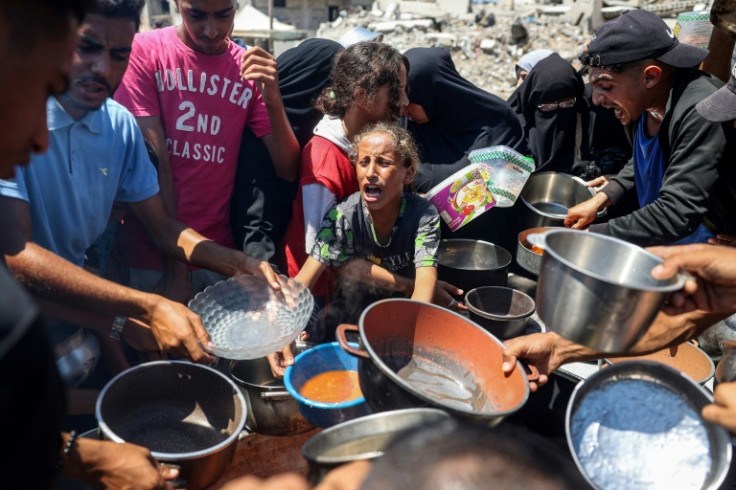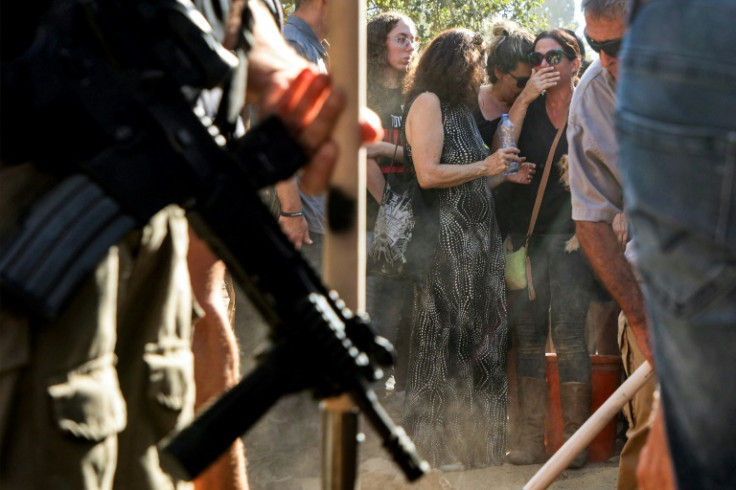
Hopes were dwindling Thursday for a ceasefire in the Gaza Strip, where fighting raged despite pressure from the United States on Israel and Palestinian militants Hamas to reach an agreement.
After more than 10 months of war, officials from the United States and Arab mediators Egypt and Qatar had been set to meet in Cairo for a new round of talks this week, but confirmation was still pending.
The war triggered by Hamas's unprecedented October 7 attack on Israel has devastated Gaza, displaced nearly all its population at least once and triggered a humanitarian crisis.
Diplomatic efforts have intensified amid the risk of a wider war following killings, widely blamed on Israel, that sparked threats of reprisals from Iran and its allies.
US Secretary of State Antony Blinken on Wednesday ended his latest tour of the Middle East, aimed at finalising a ceasefire, without a breakthrough.
In a phone call later, President Joe Biden pushed Israeli Prime Minister Benjamin Netanyahu to accept a deal, amid pressure from pro-Palestinian protesters at the US Democratic party's convention ahead of a November presidential election.
"The president stressed the urgency of bringing the ceasefire and hostage release deal to closure and discussed upcoming talks in Cairo to remove any remaining obstacles," the White House said.
Biden also reassured him of the efforts of the United States -- Israel's main ally and weapons supplier -- to support it against threats from Iran and its proxies.
Vice President Kamala Harris, the Democratic party's candidate in the US presidential election, also took part in the call.
Netanyahu, a hawkish political veteran leading a fragile right-wing coalition, has reportedly disagreed on a key sticking point -- the removal of Israeli troops from the border between Gaza and Egypt.
His office confirmed the phone conversation, without elaborating on its content.
Israel's Yedioth Ahronoth newspaper quoted "officials knowledgeable about the negotiations" as saying "the chances for a deal are slim" but attempts were being made to hold talks in Cairo on Friday and Saturday.
It said, quoting the same source, that Netanyahu insisted on an Israeli army "presence along the Philadelphi Corridor" and that the United States "demanded a significant withdrawal of troops" in two stages.
The daily said "the Americans understood the mistake" made by Blinken when he announced during his visit to Israel that Netanyahu had accepted a US proposal to bring the two sides closer together and that "the ball was now in Hamas's court".
It said US Middle East envoy Brett McGurk had been sent to Cairo to prepare for the meeting and to seek to resolve the Philadelphi Corridor issue.
Hamas on Sunday said the US proposal "responds to Netanyahu's conditions" and accused him of "obstructing an agreement."
In its statement, Hamas cited Netanyahu's "insistence on continuing to occupy" the Philadelphi corridor and two other areas, which Israel sees as important for preventing the flow of weapons into Gaza.
The Islamist group said it was keen to reach a ceasefire but protested "new conditions" from Israel in the latest US proposal.
The October 7 attack on southern Israel resulted in the deaths of 1,199 people, most of them civilians, according to an AFP tally based on Israeli official figures.
Israel's retaliatory military campaign has killed 40,265 Palestinians in Gaza, according to the Hamas-run territory's health ministry, which does not give details of civilian and militant deaths. The UN rights office says most dead are women and children.
Palestinian militants also seized 251 hostages, of whom 105 remain in Gaza including 34 the military says are dead.
On the ground, Gaza's civil defence agency said at least three people were killed and 10 children wounded in an Israeli strike Wednesday on a school-turned-shelter in Gaza City.
The Israeli military said Thursday that it "conducted a precise strike on a weapons storage facility" near a Hamas command-and-control centre inside a compound that previously served as a school.
The United Nations says Israel has struck at least 23 schools sheltering displaced people in Gaza since July 4
Troops "eliminated" more than 50 militants in the past 24 hours and intensified operations in the Khan Yunis area and the outskirts of Deir el-Balah, the military said.
A civil defence spokesperson reported bombings in the Nuseirat and Maghazi refugee camps, and east of Khan Yunis.
Witnesses reported seeing heavy Israeli shelling in Khan Yunis as well as clashes between Palestinian militants and the army in the Netzarim junction further north.
Violence has also escalated in the Israeli-occupied West Bank.
The Palestinian territory's health ministry said three people were killed in an Israeli strike on a house in Tulkarem refugee camp on Thursday.
The Israeli military said it carried out a "counterterrorism operation" in the city of Tulkarem.
Fears of a major regional escalation have mounted since Lebanon's Hezbollah movement and other allies of Iran vowed to respond to twin killings of top Hezbollah and Hamas militants, blamed on Israel, late last month.
China on Thursday urged its citizens to leave Lebanon "as soon as possible", becoming the latest country to do so.
On Wednesday the West Bank-based Palestinian movement Fatah, a rival of Hamas, accused Israel of attempting to ignite a "full-scale" regional war after killing one of the leaders of its armed wing in Lebanon.











